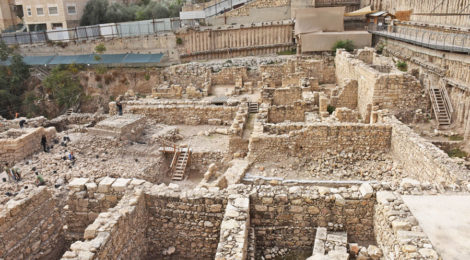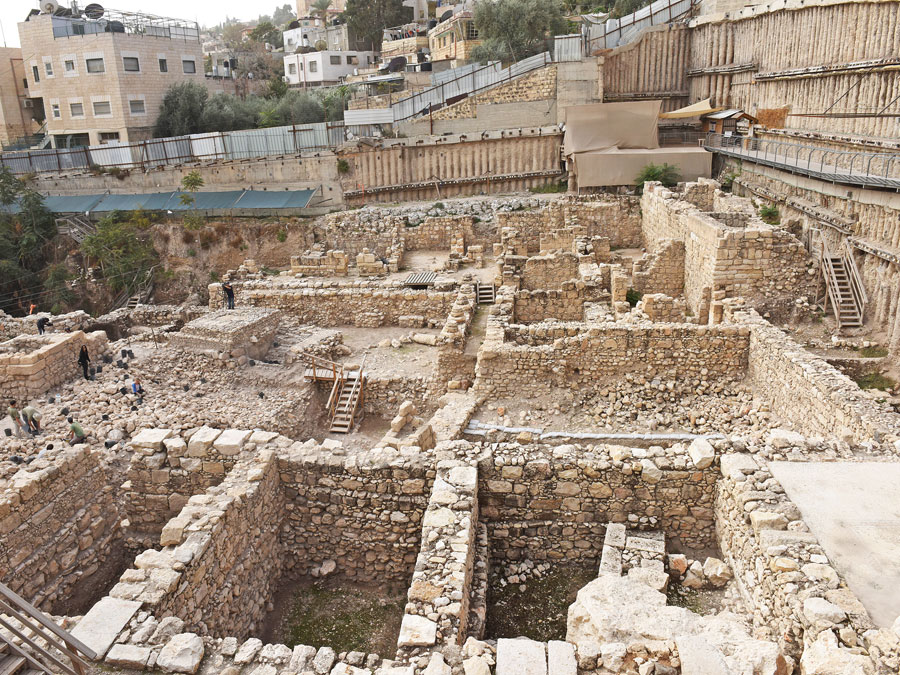
Ancient History: Why Was There a Greek Fortress in Jerusalem?
Ancient History: Why Was There a Greek Fortress in Jerusalem?
Recent news out of Jerusalem of the discovery of an ancient Greek fortress has captured the imagination of many moderns. This fortress, believed to be the famous Acra fortress mentioned in several ancient texts, is a reminder that Jerusalem, and the region it is a part of (called, variously: Israel, Palestine, Judah, West Bank, etc), has been conquered, occupied, and ruled by many different and diverse peoples and empires over the millennia.
Which begs the question: Why was there a Greek fortress in Jerusalem?
As described in a recent National Geographic article, the archeological dig has uncovered the remains of a fortress built by Antiochus IV Epiphanes, the ruler of the Greek-speaking Seleucid Empire. Antiochus IV Epiphanes was the eighth Seleucid ruler of a dynasty that was begun by his Great-Great-Great-Grandfather, Seleucus I Nicator, who had been one of the generals serving Alexander the Great, who was himself a Greek-speaking Macedonian. After Alexander’s death, his generals fought among themselves over who should rule his empire, with Seleucus I Nicator taking over a large part of Alexander’s Asian territories. The Seleucids fought multiple wars with the other Greek-speaking empires ruled by Alexander’s other generals and their descendants, in particular with the Ptolemaic empire in Egypt. Ptolemy had been a general of Alexander along with Seleucus, with Ptolemy and his descendants ruling Egypt. (NOTE: Ptolemy’s most famous descendent was Cleopatra, the last Ptolemaic ruler of Egypt before the Romans added Egypt to their empire).
Jerusalem, and the Jewish tribes that inhabited the city and the surrounding land, found themselves under Ptolemaic and Seleucid rule, depending on which Greek-speaking empire had the upper hand at any one time. By the time of Antiochus IV Epiphanes, the Seleucids were dominant in the area, to the point of conquering most of Egypt. However, a faction of Jews in Jerusalem rebelled against Seleucid rule. Jews were then divided into those following traditional Jewish culture, and those who were ‘Hellenized,’ or preferring Greek (Hellenistic) culture. The Jewish traditionalists launched an attempted coup against the Hellenized Jews and their Seleucid rulers. Antiochus IV Epiphanes took his revenge by killing thousands and outlawing the Jewish faith. This is known to us through the Old Testament and the Torah .
When these happenings were reported to the king [Antiochus IV Epiphanes], he thought that Judea was in revolt. Raging like a wild animal, he set out from Egypt and took Jerusalem by storm. He ordered his soldiers to cut down without mercy those whom they met and to slay those who took refuge in their houses. There was a massacre of young and old, a killing of women and children, a slaughter of virgins and infants. In the space of three days, eighty thousand were lost, forty thousand meeting a violent death, and the same number being sold into slavery.
— 2 Maccabees 5:11–14
Several historical texts, including 1 Maccabees, tells of the building of a great fortress in Jerusalem and the suppression of the Jews by the Greek Seleucids:
And they built the city of David with a great and strong wall, and with strong towers, and made it a fortress [Greek: Acra] for them: And they placed there a sinful nation, wicked men, and they fortified themselves therein: and they stored up armor, and victuals, and gathered together the spoils of Jerusalem; And laid them up there: and they became a great snare. And this was a place to lie in wait against the sanctuary, and an evil devil in Israel.
— 1 Maccabees 1:35–38
Obviously, the Jewish books of the Maccabees are anti-Greek here, but it should be pointed out, that while 1 Maccabees was written in Hebrew, 2 Maccabees was written in Greek, though much later. By the time of Jesus almost two hundred years later, and the in the writings of the books of the New Testament, Greek culture (even though by then Jerusalem was ruled by Latin-speaking Romans), was so pervasive, that much of the New Testament was originally written in Greek.
Thus, while the local inhabitants of the city of Jerusalem (most of whom were Jewish), spoke various local dialects (Aramaic, Hebrew, and others), their generations-long rule by the Greek-speaking Macedonians, Ptolemies, and Seleucids left a strong cultural imprint, and, of course, affected their history and politics. To enforce his brutal rule and in an attempt to stamp out the Jewish faith and replace it with worship of the traditional pagan Greek gods, Antiochus built his mighty fortress of Acra, which today is an open archeological pit in a nation founded by the descendants of the very Jews he attempted to destroy.

